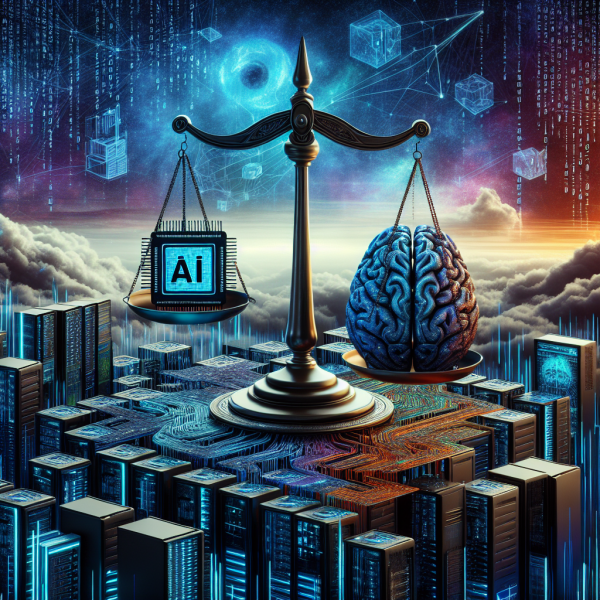How Natural Language Processing is Shaping the Future of Customer Experience

In today’s fast-paced digital landscape, businesses are constantly seeking innovative ways to enhance customer experience. As consumers increasingly demand personalized, efficient, and seamless interactions, organizations are turning to technology to meet these expectations. Among the most transformative technologies reshaping customer experience (CX) is Natural Language Processing (NLP), a branch of artificial intelligence that focuses on the interaction between computers and human language.
What is Natural Language Processing?
Natural Language Processing enables machines to understand, interpret, and generate human language in a way that is both meaningful and contextually relevant. By using computational techniques, NLP facilitates a deeper connection between humans and machines, allowing for a more dynamic exchange of information. NLP encompasses various subfields, including speech recognition, sentiment analysis, machine translation, and chatbot development.
The Impact of NLP on Customer Experience
-
Enhanced Communication through Chatbots and Virtual Assistants
One of the most visible applications of NLP in customer experience is the development of chatbots and virtual assistants. These AI-driven tools can engage with customers in real-time, providing immediate support and assistance. By interpreting natural language queries, chatbots can answer questions, troubleshoot issues, and even facilitate transactions. This round-the-clock availability not only boosts customer satisfaction but also reduces operational costs for businesses.
-
Personalization at Scale
Traditional marketing practices often rely on broad demographic data and generic messaging, which may fail to resonate with individual consumers. NLP allows businesses to analyze vast amounts of data, including customer feedback, social media interactions, and purchase histories. Through sentiment analysis and other techniques, companies can gain insights into customer preferences and behaviors, enabling them to deliver personalized experiences tailored to specific needs and interests.
-
Handling Customer Feedback
Processing customer feedback efficiently is crucial for improving products and services. NLP equips businesses with the ability to analyze unstructured data from sources like surveys, reviews, and social media platforms. By identifying trends, recurring issues, and overall sentiment, organizations can respond proactively to customer concerns and continuously enhance their offerings.
-
Improving Search Functions
Search functionality is a core component of any digital customer experience, and traditional keyword-based search methods often fall short. NLP enhances search capabilities by allowing users to employ natural language queries. For instance, rather than inputting "red running shoes," a customer can ask, "What are the best running shoes for beginners?" This leads to more relevant results, enhancing user satisfaction and driving conversions.
- Streamlined Support Services
In customer service, NLP can automate responses to frequently asked questions, categorize inquiries, and route them to appropriate representatives. By understanding the intent behind customer queries, NLP-powered systems can alleviate the burden on human agents, allowing them to focus on more complex issues while ensuring faster resolution times for customers.
Future Directions of NLP in Customer Experience
As technology continues to evolve, the role of NLP in customer experience is expected to expand further. Here are some potential future developments:
-
Voice Interaction: With the rise of voice-activated devices, NLP will likely play a crucial role in enabling voice-driven customer interactions. Businesses may develop systems that understand and process voice commands more effectively, enhancing user convenience.
-
Hyper-Personalization: The future of personalization could involve real-time adjustments based on customer mood and context. Through advanced sentiment analysis, businesses might gauge emotions and tailor their responses instantaneously, creating more empathetic and meaningful interactions.
-
Multilingual Support: As businesses expand globally, NLP’s multilingual capabilities will become increasingly important. Companies will be able to serve diverse customer bases by providing seamless communication in multiple languages.
- Proactive Engagement: Future NLP applications could enable proactive engagement, where companies anticipate customer needs based on analysis of previous interactions and behaviors. By initiating communication at the right moment, businesses can enhance customer loyalty and satisfaction.
Conclusion
Natural Language Processing is a game-changer for customer experience, redefining how organizations interact with their clients. By leveraging NLP technologies, businesses can improve communication, enhance personalization, and streamline support services, ultimately leading to greater customer satisfaction and loyalty. As trends develop and NLP capabilities expand, the future of customer experience holds the promise of even more innovative, efficient, and meaningful interactions between brands and consumers. In an era where customer expectations are higher than ever, embracing NLP is not just a competitive advantage—it’s becoming a necessity for businesses aiming to thrive in a fast-evolving landscape.














